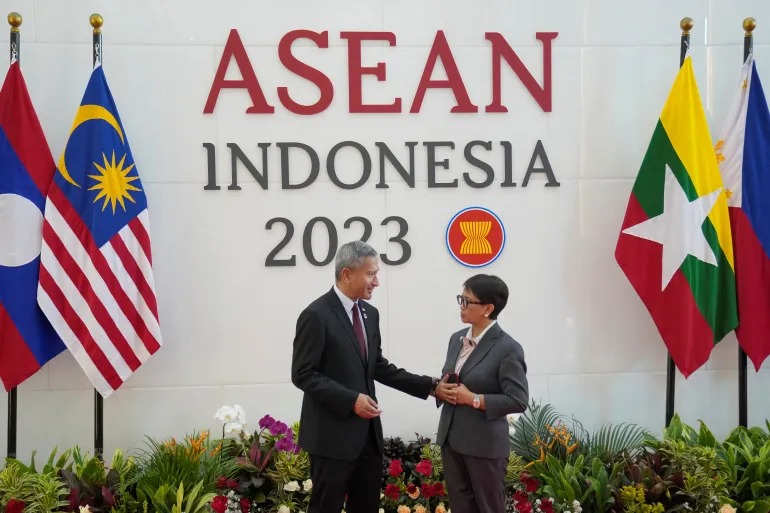As the Association of Southeast Asian Nations (ASEAN) gathers for a pivotal summit in Jakarta this week, the regional bloc finds itself at a crossroads, grappling with internal divisions and external pressures. Leaders from ASEAN’s 10 member countries and soon-to-be member East Timor have convened in Indonesia’s capital amidst mounting challenges. With the presence of high-profile figures such as United States Vice President Kamala Harris and Chinese Premier Li Qiang, the spotlight is on ASEAN to bridge differences over Myanmar and assert its role in Southeast Asian diplomacy.
Struggles Over Myanmar Threaten ASEAN’s Unity
Thailand’s decision to break ranks with the collective ASEAN stance, which had suspended Myanmar’s generals from top meetings, and align itself with Myanmar’s government, backed by China, marked a turning point in the region’s dynamics. The subsequent expulsion of East Timor’s top diplomat in Myanmar further highlighted the strains within ASEAN. Indonesian Foreign Minister Retno Marsudi acknowledged these difficulties, stating, “The eyes of our peoples are on us to prove ASEAN still matters.”
South China Sea Disputes Add to ASEAN’s Woes
In addition to the Myanmar crisis, ASEAN faces ongoing challenges concerning the disputed South China Sea. Progress towards a code of conduct has been sluggish, with recent incidents, such as China’s use of water cannons against Filipino resupply vessels, heightening tensions. ASEAN’s silence on these key issues has led to questions about its relevance, with ASEAN Parliamentarians for Human Rights co-chair Charles Santiago noting, “How can ASEAN matter if it cannot come together to resolve the most crucial and pressing issue in the region?”
ASEAN’s Credibility Under Strain
The credibility of ASEAN, often regarded as the region’s diplomatic linchpin, is under severe stress. Myanmar’s military regime, despite agreeing to a “five-point consensus” to end the political crisis, continues its violent crackdown, resulting in thousands of civilian casualties and detentions. While some ASEAN members, including Indonesia and Malaysia, have engaged with Myanmar’s National Unity Government (NUG), the bloc’s inability to forge a united front has raised concerns about its effectiveness. Analysts suggest that ASEAN’s founding states may need to co-lead efforts to pressure Myanmar’s military regime and engage with the NUG.
As ASEAN grapples with internal divisions and external pressures, its ability to address the Myanmar crisis and the South China Sea disputes will determine its continued relevance in Southeast Asia. The world watches closely as regional leaders gather in Jakarta, hoping that ASEAN can rise above its challenges and fulfill its role as a unifying force in a region marked by great power rivalry. The road ahead remains uncertain, with the prospect of a paralyzed ASEAN under the leadership of Laos looming as a potential outcome.















